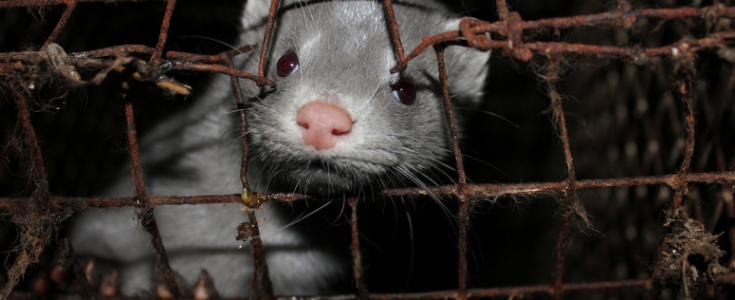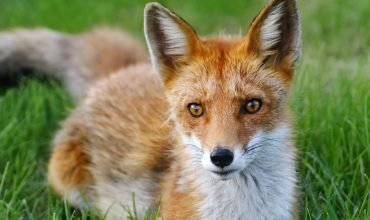Two mink farms in the Netherlands have been placed into quarantine after coronavirus was detected in the animals, the Dutch Agricultural Ministry has said.
Animals on fur farms are raised in terrible conditions, with non-domesticated animals kept in close confinement in tiny barren cages.
The animals were displaying symptoms that included respiratory issues, the ministry said, adding that it assumed they contracted the virus from farm employees.
As a result, the fur farms are banned from moving the mink or their manure. The facilities’ air and soil will be tested, and people are advised not to go within a quarter-mile of the farms.
Carola Schouten, the Dutch agriculture minister, has also introduced a measure that requires all mink farmers, veterinarians and researchers to report any respiratory illness or increased mortality in the animals to the government.
The towns where the fur farms are located, Germet-Bakel and Laarbeek, are located in the Noord-Brabant region in the country’s south, which has seen the Netherlands’ worst coronavirus outbreak. The two farms have more than 20,000 mink between them, Dutch News reported.
Thankfully, the Netherlands introduced a ban on fur farming in recent years. New mink farms are not permitted, and existing fur farms are to be phased out by 2024.
However, it is now clear that fur factory farming should be reviewed in relation to this crisis.
It is understood that caged mink were present at the now infamous Wuhan wet market, suspected to be the place where the deadly pandemic first spread to humans via an intermediary species. It is still not clear what the intermediary species is.
Respect for Animals urges all governments to quickly ban fur farming and asks consumers to continue to reject the cruel and unnecessary fur trade.
Respect for Animals also calls on the government of China to list fur farmed animals not as standard ‘livestock’’, but as ‘wildlife’ that must be constrained.
Animal welfare science shows that fox and mink bred on fur farms around the world are not domesticated and are not comparable to livestock such as cattle.
Recent moves by China to restrict wildlife food markets must also include animals raised for other reasons, including for ‘entertainment’ and ‘medicine’- and certainly for fur.
This is not only necessary for animal welfare reasons, it is also imperative for human health.




